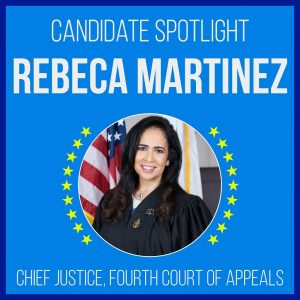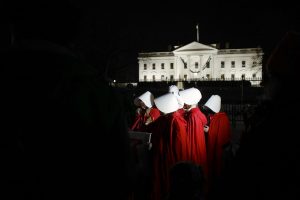by Kevin Henning, KCDP Chair
for the “Progressive Views” column, Boerne Star, February 7, 2020

The recent MLK Day March in Boerne continues to be an inspiring event as reported by the Boerne Star. It is especially significant that folks from different political viewpoints are represented. Hopefully, people of goodwill can agree that working to end racial hatred and bigotry is still a priority.
Inspired by the MLK events and Black History Month, here are some post-WW II commentaries starting with President Harry Truman’s 1948 Executive Orders. The orders banned segregation in the armed forces and committed to fair labor practices in civil service. President Truman’s motives have been questioned. He grew up in the “Jim Crow” south and it is reported that he was a member of the KKK as a young politician. Yet in 1940, while running for re-election to the Senate, he began to champion civil rights.
After becoming President, he established a civil rights commission. In 1946, the commission produced a report, “To Secure These Rights,” that condemned the treatment of African Americans and segregation. The report called for the federal government to use its power to end segregation and minority voting restrictions. Truman called for implementation of all the report’s recommendations in his State of the Union addresses in 1947 and 1948.
In 1951, he issued another executive order calling for equal opportunity procurement practices in federal purchasing. Even with President Truman’s backing, positive change was slow to come as vested interests fought to keep the bigoted system in place. Whether President Truman was motivated by a realization that minorities were becoming a political force or a belief that the United States could not claim to be a shining light of democracy as long as African Americans were second-class citizens is impossible to know for sure. It might have been a combination of the two, but he did become the first President since Abraham Lincoln to champion civil rights.
In the landmark unanimous 1954 Supreme Court Decision, Brown v. Board of Education, segregation in public schools was found to be unconstitutional. The court ruled that school districts must integrate with all deliberate speed. Unfortunately, as with President Truman’s executive orders, this ruling was opposed by white Americans and a cadre of bigoted politicians who fought to maintain a segregated system. The Hispanic community also suffered from segregation and bigotry as many white Americans fought to exclude all people of color from participating in the American Dream.
Great champions of civil rights emerged after Brown v. Board of Education led by Martin Luther King Jr. and so many other brave and heroic figures. Rosa Parks, Medgar Evers, John Lewis, Whitney Young, Hosea Williams, and many, many others continued the non-violent fight through the 1950s, 60 and 70s. Their actions forced critical legislation in the 1960s. The Civil Rights Act of 1964 forbade job discrimination and the segregation of public accommodations. The Voting Rights Act of 1965 assured minority registration and voting. Unfortunately, there is still more to be done to have a truly just society.
My personal exposure to institutional segregation came in 1970, when I took my first job and was sent to Claiborne Parish, Louisiana to work as an engineer for an oil company. Louisiana politicians had fought desegregation since 1954 using the myth of “separate but equal” to justify continued bigotry. 1970 was the year that Claiborne Parish schools integrated. Northwest Louisiana was cotton country but oil and gas booms beginning in the 1920s and still continuing brought more economic prosperity to the region. The population then as now was about 50% black and 50% white.
With integration finally unavoidable, the racist elements of the community established Claiborne Christian Academy, a segregationist school which still exists today. This resulted in a significant split in our office with one group of employees supporting the public schools and the other the Christian Academy. The lunch room became tense as the two factions refused to eat together. My supervisor, a Midland, Texas-born Aggie, was a champion for the public schools, and along with many others in the community, worked to make integration a success.
In 1970, after almost 40 years the integrated high school football team won the State Championship for small schools in what can be described as a “Remember the Titans” moment. They won again in 1971. My recent check of Louisiana high school football records showed that they have won more state football championships than any school in Louisiana. I also note that the mix of officials in the county is consistent with the demographics of the community. I hope this says that progress can be made.
So, as we remember the legacy of Martin Luther King Jr., as we honor Dr. King’s life, let us recommit ourselves to his vision of equality, opportunity, and justice for all.



